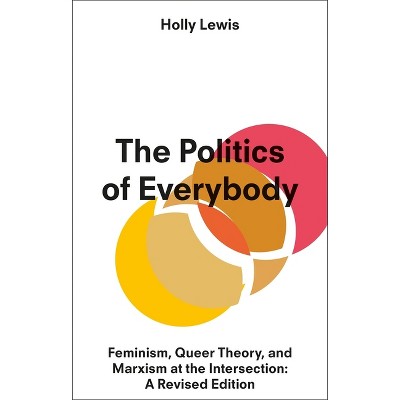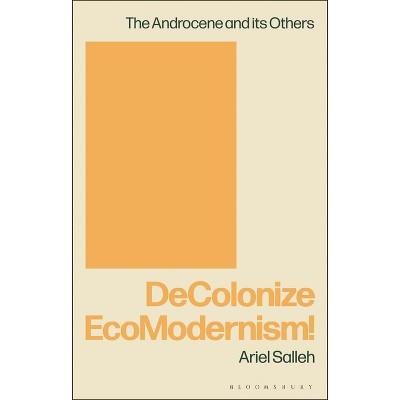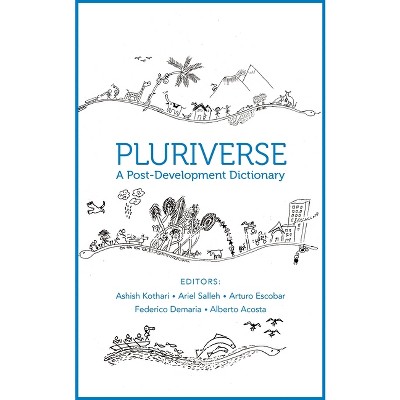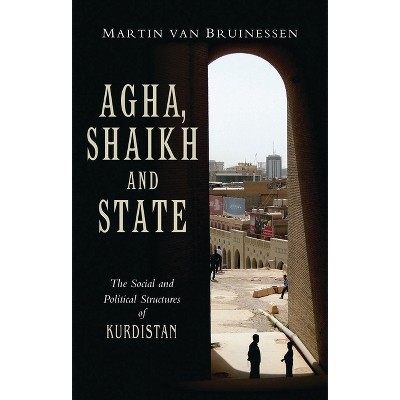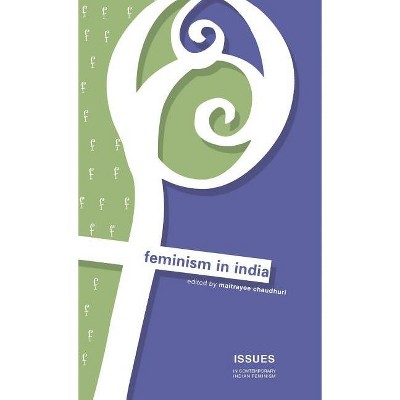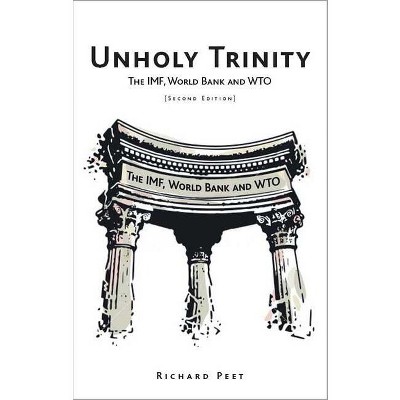About this item
Highlights
- Ecofeminism as Politics is now a classic, being the first work to offer a joined-up framework for green, socialist, feminist and postcolonial thinking, showing how these have been held back by conceptual confusions over gender.
- About the Author: Ariel Salleh is a founding member of the Global University for Sustainability, Hong Kong; Visiting Professor in Culture, Philosophy & Environment, Nelson Mandela University; 2013 Senior Fellow in Post-Growth Societies, Friedrich Schiller University Jena: and Research Associate in Political Economy, University of Sydney.
- 400 Pages
- Political Science, History & Theory
Description
Book Synopsis
Ecofeminism as Politics is now a classic, being the first work to offer a joined-up framework for green, socialist, feminist and postcolonial thinking, showing how these have been held back by conceptual confusions over gender. Originally published in 1997, it argues that ecofeminism reaches beyond contemporary social movement ideologies and practices, by prefiguring a political synthesis of four-revolutions-in-one: ecology is feminism is socialism is postcolonial struggle. Ariel Salleh addresses discourses on class, science, the body, culture and nature, and her innovative reading of Marx converges the philosophy of internal relations with the organic materiality of everyday life.This new edition features forewords by Indian ecofeminist Vandana Shiva and US philosopher John Clark, a new introduction, and a recent conversation between Salleh and younger scholar activists.
Review Quotes
Ecofeminism as Politics has pioneered the integration of social movement debates, and its dialectical approach viewing these concerns as internally related is pathbreaking. Ariel Salleh is a must-read authority on how to challenge capitalism in theory and as practice in the twenty-first century'.
Adam David Morton, University of Sydney, author of Revolution and State in Modern Mexico
A powerful work of scholarship that will continue to shape our thinking, debates, and actions concerning inequalities, ecology, and justice for generations to come.'
Journal of World-Systems Research
One of the most original and important thinkers in the international political ecology field; Ariel Salleh unveils the blind spot at the root of contemporary ecological and social crises and her lucid call for an 'embodied materialism' enlightens like no other framework I know.
Arturo Escobar, anthropologist, University of North Carolina at Chapel Hill, and author of Designs for the Pluriverse
About the Author
Ariel Salleh is a founding member of the Global University for Sustainability, Hong Kong; Visiting Professor in Culture, Philosophy & Environment, Nelson Mandela University; 2013 Senior Fellow in Post-Growth Societies, Friedrich Schiller University Jena: and Research Associate in Political Economy, University of Sydney.
Ariel Salleh is a founding member of the Global University for Sustainability, Hong Kong; Visiting Professor in Culture, Philosophy & Environment, Nelson Mandela University; 2013 Senior Fellow in Post-Growth Societies, Friedrich Schiller University Jena: and Research Associate in Political Economy, University of Sydney. She taught in Social Ecology at the University of Western Sydney for a number of years; and has lectured at many schools including NYU; ICS, Manila; York University, Toronto; and Lund. Salleh's theoretical work builds on activist experience in anti-nuclear politics, water catchments, biodiversity protection, and support for Asia-Pacific women's eco-sufficient community alternatives. She cofounded the Movement Against Uranium Mining in Australia; The Greens; has served on the Australian Government's Gene Technology Ethics Committee; International Sociological Association Research Committee for Environment & Society; and various journal editorial boards. Her ideas are developed in the books Ecofeminism as Politics: nature, Marx, and the postmodern (1997), Eco-Sufficiency & Global Justice: women write political ecology (2009), and some 200 chapters and articles in Capitalism Nature Socialism, Globalizations, Environmental Ethics, Arena, Journal of World Systems Research, New Left Review, Organization & Environment, Environmental Politics, and The Commoner. Salleh's transdisciplinary analysis is seminal to political ecology as the study of humanity-nature relations. As an early eco-socialist formulation, her embodied materialism emphasises the political economy of reproductive or regenerative labour in the world system. By restoring value to local everyday care giving and indigenous livelihood skills, she re-orients social justice and sustainability debates on water, climate, and the neoliberal green economy.







